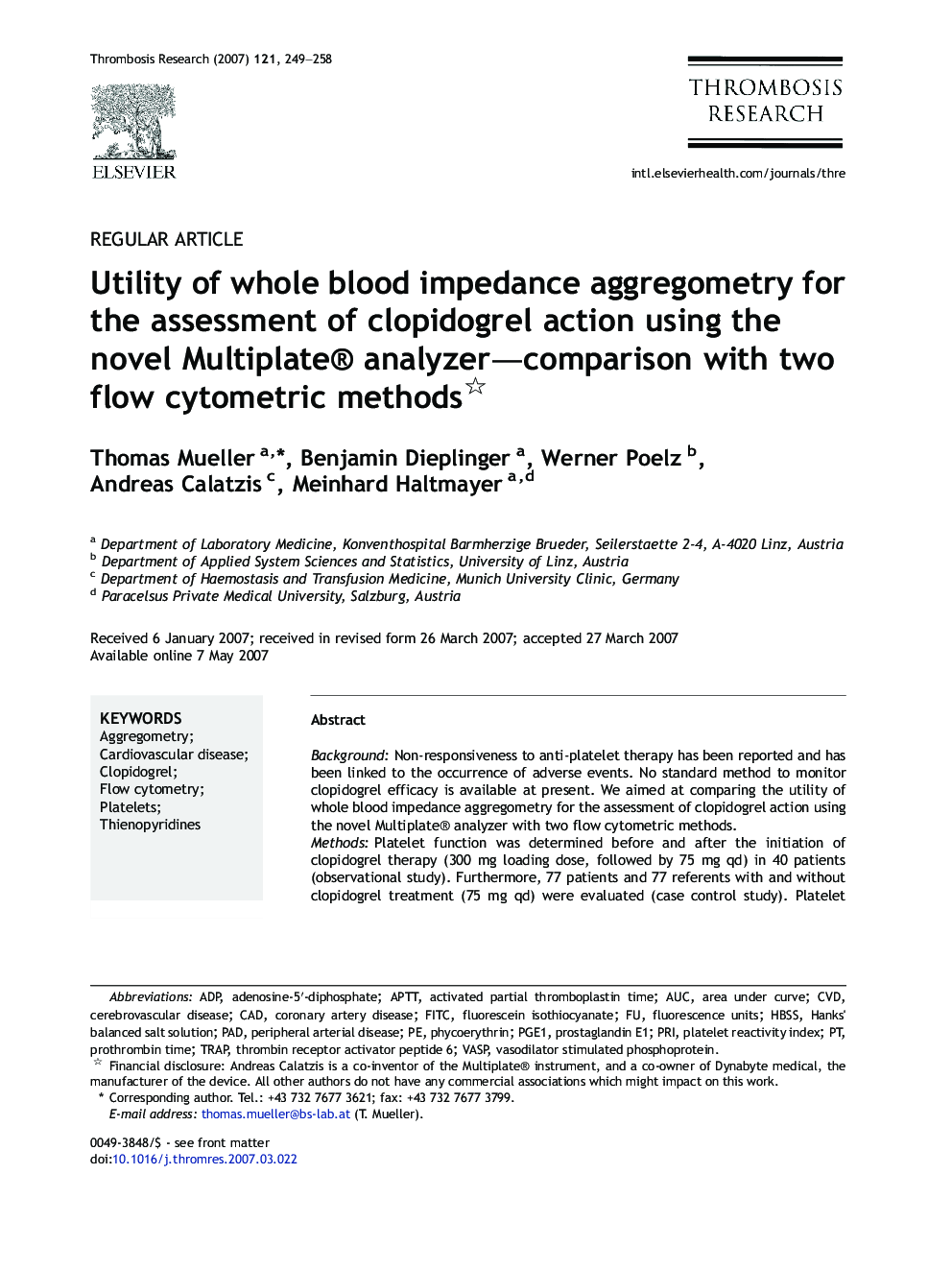| Article ID | Journal | Published Year | Pages | File Type |
|---|---|---|---|---|
| 3029903 | Thrombosis Research | 2007 | 10 Pages |
BackgroundNon-responsiveness to anti-platelet therapy has been reported and has been linked to the occurrence of adverse events. No standard method to monitor clopidogrel efficacy is available at present. We aimed at comparing the utility of whole blood impedance aggregometry for the assessment of clopidogrel action using the novel Multiplate® analyzer with two flow cytometric methods.MethodsPlatelet function was determined before and after the initiation of clopidogrel therapy (300 mg loading dose, followed by 75 mg qd) in 40 patients (observational study). Furthermore, 77 patients and 77 referents with and without clopidogrel treatment (75 mg qd) were evaluated (case control study). Platelet function was assessed by Multiplate® ADP and ADP + PG tests, by P-selectin (CD62P) expression, and by vasodilator stimulated phosphoprotein (VASP) phosphorylation status.ResultsThe observational study revealed that platelet reactivity decreased significantly after clopidogrel administration with all 4 methods (p < 0.001 for each). In the case control study the median values of all 4 tests were significantly higher in the referents without clopidogrel treatment than in the patients on clopidogrel therapy (p < 0.001 for each). Applying test specific lower reference limits as criterion for the differentiation between responders and non-responders to clopidogrel treatment, 57% of the patients on clopidogrel therapy were classified as non-responders with the Multiplate® ADP test, 38% with the Multiplate® ADP + PG test, 55% with the P-selectin assay, 9% with the PLT VASP/P2Y12 assay.ConclusionsThe VASP phosphorylation assay appeared to be advantageous for the assessment of clopidogrel action compared to the Multiplate® ADP + PG test, the P-selectin assay, and the Multiplate® ADP test (listed in descending order). However, our method comparison study underscores the critical nature of the dependence of results on the techniques used in specific studies, and it remains to be elucidated which method correlates best with the occurrence of adverse events.
